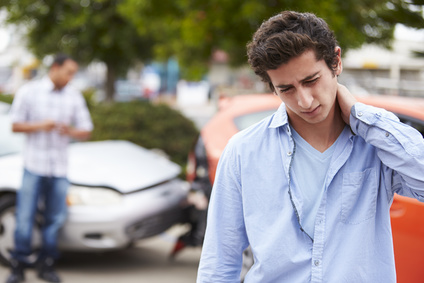
Head and neck injuries, more specifically whiplash and concussions, are commonly the results of a car accident. And yet, many people do not know the symptoms of the two, let alone the overall difference between the two. Read on to discover more about whiplash and concussions and how one of the seasoned Baltimore County car accident attorneys at the Law Offices of Markey & Orsi can help you receive the financial compensation that you require to heal from them.
What is the difference between a whiplash and a concussion in a car accident?
First of all, whiplash is considered a neck injury that occurs from the forceful back-and-forth movement of the neck. This is often seen in a rear-end accident, as a driver and their passengers are not anticipating the impact. Symptoms of whiplash include the following:
- The worsening of neck pain with movement.
- The loss of range of neck motion.
- Headache starting at the base of the neck.
- Tenderness in the shoulder, back, and upper arms.
- Numbness in the arms.
- Dizziness or fatigue.
On the other hand, a concussion is considered a type of traumatic brain injury that occurs from a blow to the head. This may occur in any type of car accident, and even a temporary loss of consciousness may occur. Other symptoms of a concussion include the following:
- Headache.
- Ringing in the ears.
- Blurry vision.
- Sensitivity to light and sound.
- Slurred speech.
- Nausea or vomiting.
- Confusion or “feeling foggy.”
- Dizziness or fatigue.
What should I do if I suspect I have a head/neck injury after my car accident?
Usually, symptoms of whiplash and concussion do not present themselves until days after your car accident occurs. This is why you must seek medical treatment immediately after your accident regardless of whether you are symptomatic. This means calling an ambulance to the scene, being driven to the emergency room directly afterward, and scheduling follow-up appointments with your physician as directed.
Later on, if you choose to file a personal injury claim to recover your injuries and damages, the defendant and their attorney may poke at your argument if you did not seek immediate medical treatment. That is, they may counter by stating that your whiplash or concussion was not directly tied to the car accident. Or, they may state that these injuries are not as severe as you led them to be, or else you would not have hesitated in seeking medical treatment.
For more information on what steps you should take after your car accident, consult with a competent Baltimore County auto accident attorney. We look forward to hearing from you.